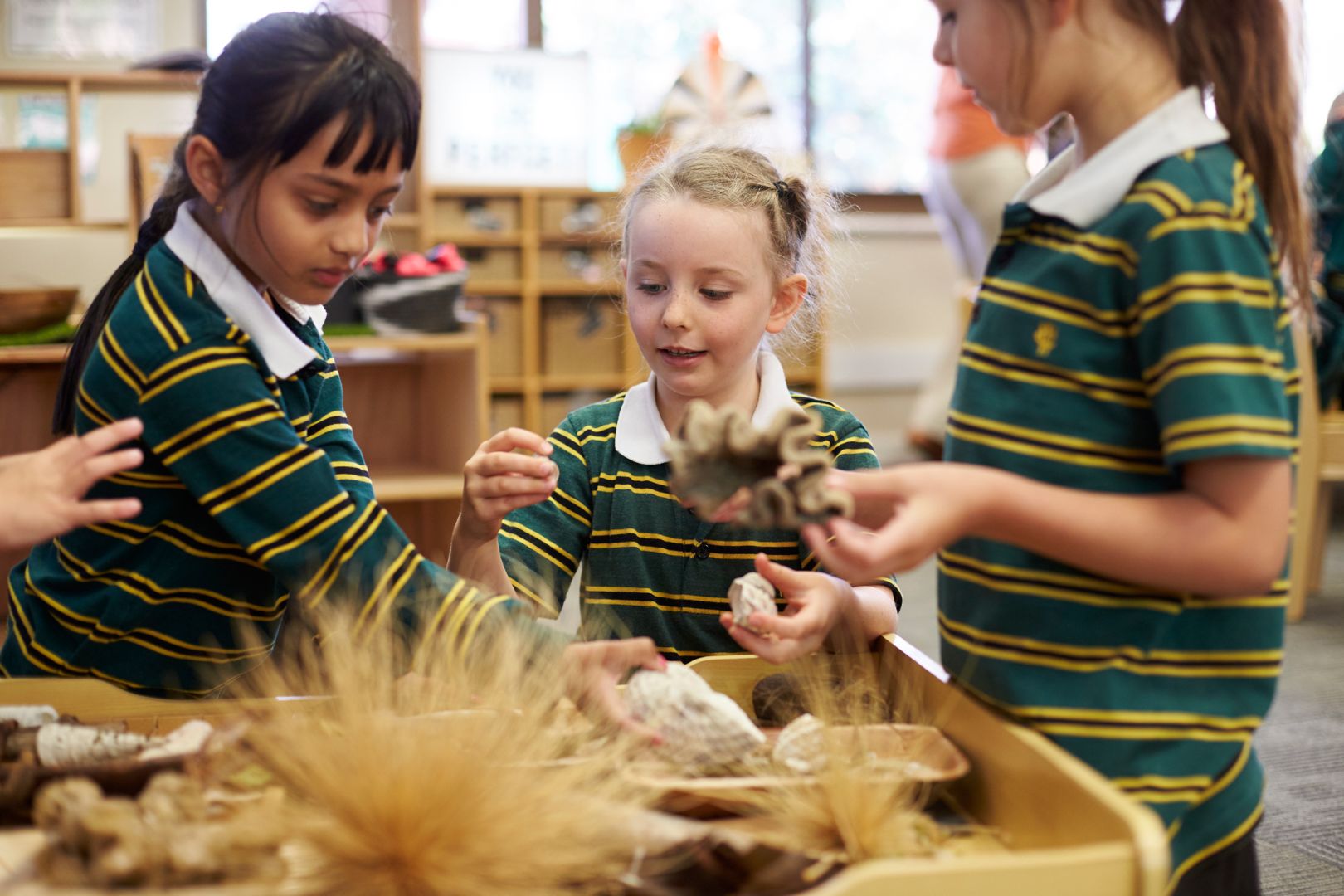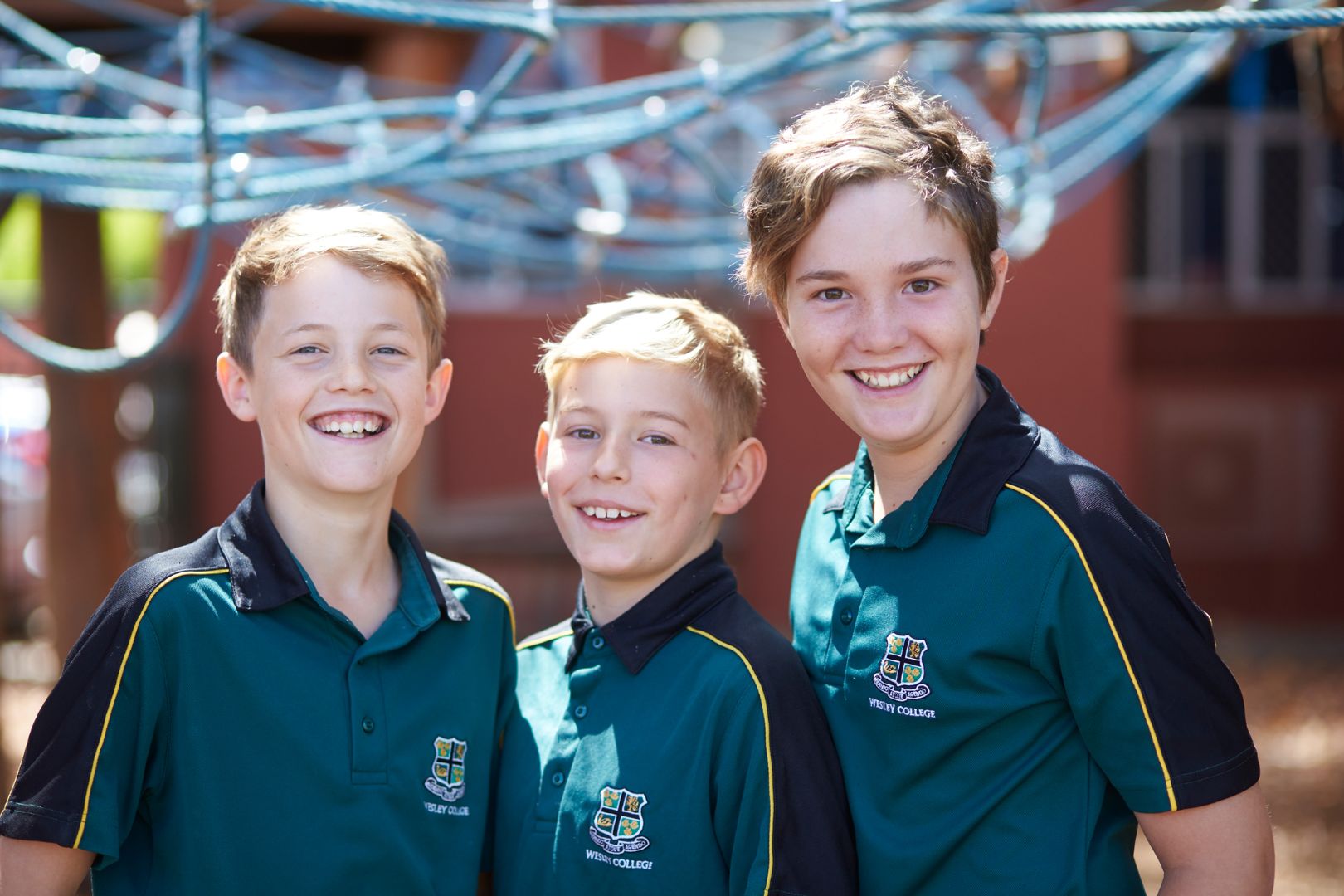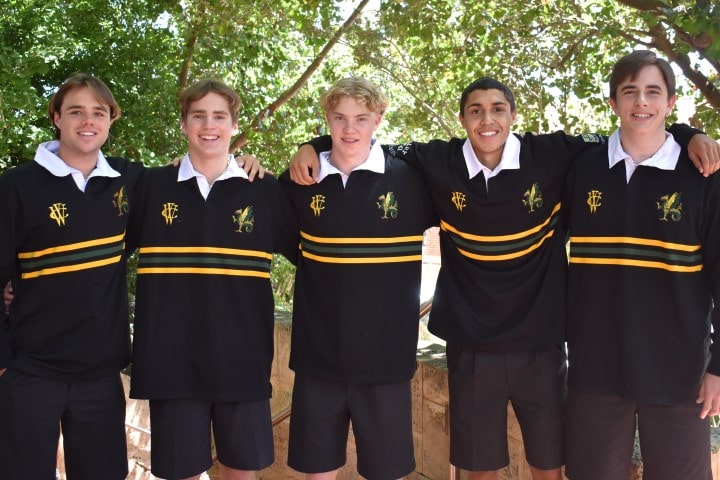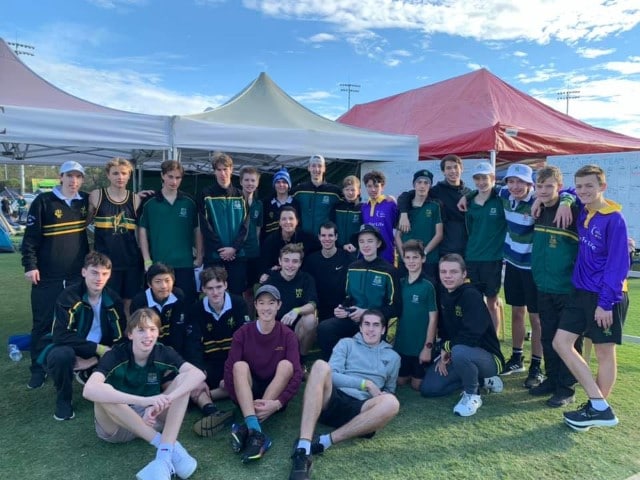Milestones are reference points we all use in life. So, what are the key milestones that students at Wesley encounter as they travel through the College?
We have a tendency to measure life in milestones—birthdays, getting your P-plates, marriage, promotions. A series of key moments, one building on top of the next, until life’s journey is complete.
The phrase itself comes from the Romans and the marker stones they used to put every thousandth double-step along their famously straight roads. A thousand double steps was a mille. And so it is at Wesley. Students go through a thousand key steps on the way to the big one: graduation.
Each of these achievements is carefully planned, to increase the student’s sense of independence and self-belief as they grow. A thousand steps towards knowing themselves and becoming people ready to move into the wider world with confidence.
As with most things at the College, it all starts in the Junior School…
The first steps.
By Mrs Jo Edinger, Head of Junior School.

Somewhere in the hazy corners of our minds, we all remember our first time reading out loud or the pride of earning our first gold star. But among such universal experiences, Wesley offers encounters with industry specialists that inspire students in ways designed to stay with them for life.
Our Scientist-in-Residence program takes a biologist, an astronomer, an engineer and a chemist and transplants them from their usual office into the classroom. Their passion for their subject is infectious. The children get swept up in the opportunity to gaze into the heavens or examine the banks of the Swan River. For some, it will be the first spark in a desire to find a career within the STEM topics of Science, Technology, Engineering and Mathematics.
Developing students’ abilities as leaders is an important step towards producing men and women for others. Student leadership in the Junior School provides opportunities for students to demonstrate and develop their talents, skills and interests.
Leadership opportunities
We recognise leadership opportunities for all students as role models for others. Each student is encouraged to take responsibility for routine classroom duties and students at all levels in the Junior School are given many opportunities to develop skills in responsible leadership.
Year 4 students, in particular, are formally recognised as leaders of the Junior School and are offered the opportunity to hold a formal leadership position. There are many roles to choose from including Chapel Monitor, House Captain, Sustainability Leader, Play Leader, Sports Leader, Indonesian Leader, Arts Leader and Library Leader.
Of course, a leader is not someone who simply has a badge on their jacket. At Wesley College, we believe leaders are those who want to make a difference in the lives of others through service. “Jesus did not come to be served, but to serve” (Mark 10:45), and so our leadership philosophy is based on this understanding.
It’s all part of helping each child grow emotionally as well as academically as they move through the College.
Becoming independent.
By Mr Brad Hilliard, Head of Middle School.

As is the way with forward steps, Junior School soon gives way to Middle School. There are many milestone experiences that take place within this period of each student’s journey.
At the start of Year 5, we have students move from Junior School to Middle School as well as an influx of students for Year 7 who are new to Wesley. Each student has their own perspective on the experience, so when reflecting on this article my first thought was to have a chat with a group of students so they could share their own experiences.
In their own words
‘Moving into Middle School from Junior School has made me be a lot more responsible and independent,’ says Chloe Purt in Year 5. ‘It has opened up a lot of opportunities for me and it has been very fun, with the Year 5 camp being a great highlight!’
Aarush Manocha in Year 5 agrees. He moved from the Junior school into an all-boys Year 5 class: ‘Transitioning from Junior School to Middle School was tough, but exciting. The Middle School is full of brand-new adventures and fun, like camps, playing an instrument and more! The Middle School is also full of rewarding tasks. If you get put in a class without many of your friends or an all-boys class, there is no need to panic as we do many collaborative classes and activities to build a connection in the community and to build friendships.’
Boarding begins
For one specific group, our boarders, the milestone experience in the Middle School is enormous. But, for most, the experience of leaving home and moving to the boarding house is a smooth process.
‘My first three terms at Wesley have flown past, I can hardly believe that I will soon have completed my first year as a boarder,’ says Lawson Marquis in Year 7. ‘So many milestones come to mind, my first week—getting to know all of the other boarders and hearing their stories from home, finding my way around the school, meeting my new teachers and playing my first ever game of water polo.’
‘But the absolute best thing is the relationships with the boys across all years in the house, the Residents on Duty and especially the Year Coordinators who have all worked so hard to make me feel at home and part of a fantastic family at Wesley College.’
Experiencing Katitjin
Of course, the key milestone in the Middle School is our Katitjin program in Year 8, where the boys are given the opportunity to spend a term away from the campus to learn about vital subjects such as leadership and understanding of self. Liam Wright in Year 8 found it to be quite profound.
‘The much-anticipated Katitjin experience lived up to all the hype we had heard from previous year groups,’ he says. ‘On the surface it seemed like an opportunity to learn more about ourselves, work as a team, and gain an understanding of social injustices within our community.’
‘However, in reality, it helped me to confront my weaknesses and fears, learn to champion my fellow Mob mates and stirred a desire to build awareness, encourage acceptance and act to change the perceptions of society about disadvantaged groups.’
Looking to the future
Ultimately though, what does it all add up to? Does Middle School achieve its aim of readying students for the big step into Senior School? Joshua Varnavides in Year 8 believes so: ‘The Middle School, both through leadership and my learnings, has prepared me for Senior School and beyond.’
‘The four years of Middle School give you a glimpse of leadership and how it’s intended to be undertaken. Whether or not you are a leader, it gives you an example or experience in leadership through different roles, including the SRC, Chapel Monitors and House Captains in Year 8. I’m excited to be heading into Year 9!’
Towards the finish line.
By Mr Peter Norman, Head of Senior School.

When it comes to milestones in the Senior School, our students really are very lucky.
From the Year 9 Induction Day, right through to the multitude of Year 12 Valedictory celebrations, our students engage in experiences that allow them the opportunity to grow and develop into the very best young men that they can be.
These experiences are designed to help teach our students teamwork, leadership, resilience and independence, and help to instil in them a clear sense of identity, purpose and belonging.
Starting strong
It begins with the Year 9 Induction Day, when our newest members of the Senior School community get their first real taste of life at the top of the hill.
Senior School students take on greater personal responsibility as they have to organise themselves to move from building to building to be taught by subject specialist teachers.
The Year 9 Camp and Return to Katitjin programs at the end of Year 9 help set the students up for the journey ahead. They learn more about themselves as people and their areas of strength and passion. They also learn about the importance of helping others as they actively live out the College motto of ‘By daring & by doing’.
Picking pathways
Year 10 is the year when important subject choices are made for the pathway the students will choose in Years 11 and 12. They engage in another challenging camp to Kalbarri, along with a week of Work Experience, where they get to road test a career to see if it is one they would like to pursue.
In Year 11 the students have the opportunity to attend the Leadership Camp, which is designed to instil in them a strong sense of personal leadership and the importance of them as role models for the younger students. They are also able to nominate to become a College Prefect for Year 12. The College appoints 18 students to formal leadership roles, and each of these students then has a committee of students to assist them in leading their portfolio.
Setting the culture
In Year 12, the notion of role modelling and leadership is enhanced even further. The senior students go a long way to set the culture and overall tone of the College. Year 12 is also a great time of reflection and celebration.
One of the highlights of the Senior School journey is no doubt the Year 12 Ball. Every year, the boys look forward to this wonderful celebration with great anticipation. In addition to being a fantastic night of suave suits, brilliant ball gowns, dazzling decorations, fine food and distinguished dancing, the Ball plays an important part in the education of our young people, in that it provides a wonderful opportunity to be a rite of passage from adolescence to adulthood.
On to graduation
As I write this article, our Year 12s have just experienced all of their Valedictory events, which so beautifully celebrate the completion of this wonderful journey. It is a time for them to look back with satisfaction and pride on what they have achieved and who they have become.
Hopefully, they also took a moment to reflect on the many milestone experiences along the way that helped create both fantastic learning opportunities and wonderful memories.
The extra mile.
By Ms Lynette McGivern, Director of Service Learning and Leadership.

What about the thousand unplanned steps? The things that fall outside timetables and the curriculum? The little things that become the big things. The key moments in the lives of our students that are the result of them being prepared to take advantage of unplanned opportunities when presented.
The Senior School students who have experienced learning difficulties, mastered assistive technology to help them in their academic work and then become assistive technology learning mentors to younger students. What growth in their own learning and self-image.
Towards reconciliation
The student artists who designed the Football 1st XVIII Indigenous Round guernsey and then not only had the privilege of presenting it to the team but also playing in it themselves. Before the game, the team formally let the artists, their teammates, know exactly what it meant to them to play in the guernsey—pride, belonging, an appreciation of history and culture. What a genuine student-led example of reconciliation in action.
The student-formed charity. The young man who saw an opportunity to link the excess stationery brought home at the end of the school year with students in need. Pencil Pals, a student-initiated and managed program, sees pre-loved stationery in good condition be rehomed with some of the 600,000 Australian children living in disadvantaged homes.
Personal milestones that are shaping the future.
This article first appeared in the Summer 2021 issue of The Wesleyan. To read more, click here.
Subscribe to Wesley College News & Events